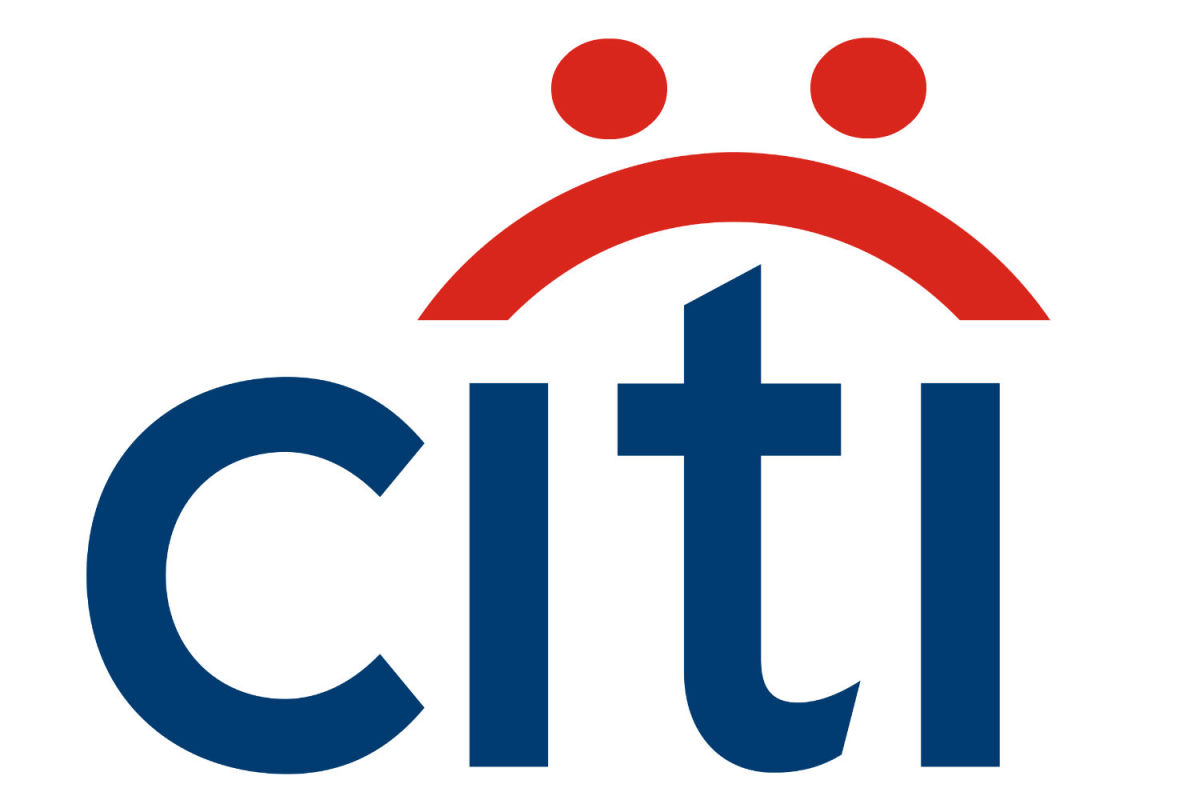Last summer, Austin Smith of Smith Law Group LLP in New York City told me a story about his morning routine during law school. I had stumbled on his work in the student loan debt space, and we had been talking for a few months. He let me speak to a few of his clients, whose stories were rife with heartbreak. But, more than hearing from his clients, I wanted to know what would drive an attorney to try and flip legal opinion about an arcane bankruptcy law that no one else seemed to know of or care about. He wanted me to know that this hadn’t been a grand plan — that he had been a screw-up, a terrible student, that his mood swings made it difficult to sustain relationships. It was not, he smirked, a story about “doing well by doing good.”
It was 2014, during his last year in law school, and every morning Smith forced himself to schlep to a local café a few blocks from campus. He was in his early 30s, a late bloomer, as it were, coming off unremarkable attempts both at working in politics and as a writer, and here he was, trudging up the street every cold New England morning, poring over his textbooks and worried he was too late. His life up until this point had been a bizarre admixture of charmed and cursed; bad decisions followed by lucky breaks or vice versa. And most of the success he did have, come to think of it, traced back to his father’s connections. He found himself the ultimate cliché, slinking back to what his father — a lawyer himself — wanted him to do all along. Up until that point, he felt himself creeping closer and closer to that of a pathetic drifter destined to sink into society’s languid center of mediocrity as if a pool of sticky black ooze.
One day, just before six a.m., he got to talking with another regular customer at the coffee shop, a local litigator, about an assignment he was dreading: writing an article for the Maine Law Review. Smith liked law, and the institution it represented, but he hadn’t yet discovered a facet of his profession in which he found purpose and passion. He had always been an out-of-the-box thinker, distrustful of the systems that purported to uplift and protect the common man, but civil rights law or public defense seemed too well-worn and typical for the budding attorney. Smith was waiting for a lightbulb to go off in his head. And, as it turns out, sharing the morning mud with a random lawyer in Maine would produce a fork in the road that would send him on a quest — one that would forever change his career and the lives of hundreds of thousands of regular people. That’s because, that morning, the local litigator told Smith he should write his article for the law review about student loan debt and bankruptcy.
“It’s really interesting,” the man told him.
Is it? Smith thought to himself. It doesn’t sound that interesting.
The man kept hounding him. “Every day, it was the same thing: Hey, look at this, look at this, look at this,” Smith said. “And so finally, just to get him off my back, I started reading the stuff he dropped off for me, and as I was reading it, that’s when I was like, ‘This statute doesn’t say what everyone thinks it says,’” Smith told me. “Everyone has been getting this wrong for decades. How did this happen?” That’s when it dawned on him: The system writ-large has always been rigged in one way or another, but it was even more cruel and arcane for the 45 million Americans who had student loan debt — and the window into all of it was the crusty old bankruptcy code about which no one had thought twice.
Bankruptcy was implemented in the early 1800s as an economic escape valve for everyday people. If a person had become consumed by debt or hardship, they could go to court and a judge would formulate a petition to manage, or discharge entirely, the money that they owed. It was, in essence, a second chance at life. To any attorney interested in bankruptcy law, however, it was carved in stone that student loans, unlike credit card or medical debt, could not be discharged. It had been this way for decades — a carefully crafted layer-cake of statutes that, over time, made it impossible to get rid of student loan debt. If you borrowed money to attend college, from the federal government and private banks alike, you were stuck with the bill for the rest of your life. To even a newbie like Smith, it was obvious that borrowers who went to college on credit would, in one way or another, have to pay back what they owed. What was the point of digging into it further? But that was before he met this random lawyer at this run-down coffee shop, and before he really started reading the fine print of these laws.
Deep in the code, Smith found vague legalese, “educational benefit,” that likely did not actually encompass any loan that provided an educational advantage. He spent two months digging through Congressional records and found that, in 1990, when this provision was written into the law, “education benefit” actually referred to specific grants, like healthcare for veterans, that the government used to issue. He was shocked because this line of the code had been protecting lenders — especially predatory big banks — for decades. These were the same banks that caused the financial crash of 2008, and they used the same playbook for subprime mortgages as they did for privately issued student loans: They preyed on people’s quest for opportunity and duped them into taking on debt that they would never realistically be able to repay.
Smith knew that there were myriad types of student loans given out to borrowers, many of which came directly from, or were insured by, the federal government and were immune to discharge in bankruptcy — “The one person you can’t screw is Uncle Sam,” Smith said — but he also knew that billions of dollars worth of debt was being issued every year from big banks directly to twinkle-eyed college kids who hoped an education would be their one-way ticket towards the American Dream. And with sky-high default rates in these pools of private student loans, an ominous comparison had presented itself: If subprime mortgage borrowers were one broken appliance away from default, indebted college graduates were one missed freelance check away from life-destroying catastrophe. Smith knew his discovery could have vast implications.
Smith wrote the article, making his case that billions of dollars of student loan debt was actually dischargeable in bankruptcy, and his professors were shocked by and skeptical of this discovery. But, still, when compared to the total amount of student loan debt out there — now over $1.7 trillion and going up $2,853.88 per second, an increase almost identical to the ongoing cost of the Global War on Terror — this slice of debt was paltry. “People tell me, ‘Well, the private student loan market is only $150 billion.’ Yes, in the abstract, it’s smaller than the federal debt, but it is affecting these people far worse,” Smith told me. “And, not for nothing, $150 billion is a shitload of money; it just doesn’t look that way compared to $1.4 trillion.”
Smith is right: The amount of outstanding private student loan debt is larger than the GDP of Austin, Texas. That’s a lot of debt being thrust upon unsuspecting borrowers, and an unimaginable amount of debt still owed by middle-class citizens. What Smith didn’t know then, but what he knows now, was that this pool of toxic debt also had profound implications for the American economy. “You do stand to see longer-term negative effects on people who can’t pay off their student loans. It hurts their credit rating; it impacts the entire half of their economic life,” Federal Reserve Chairman Jerome Powell testified before the Senate Banking Committee in March 2019. “As this goes on, and as student loans continue to grow and become larger and larger, then it absolutely could hold back [economic] growth.” And it’s estimated that, by 2023, over 40 percent of borrowers who graduated in the 2003-2004 academic year — at the height of predatory lending — will default on their loans.
But back to that crusty bankruptcy code: How on earth could laws be written that explicitly protected huge financial institutions and threw middle-class individuals under the bus? If a student thought that taking out a loan from J.P. Morgan Chase was going to help them kick-start their life as a working-class adult, they were in for a rude awakening. “Compound interest will absolutely destroy you. And there are no protections in place,” Smith told me. “You owe $100,000 at 12 percent interest? The payment plan on that is how much you have to pay a month to satisfy that loan in ten years. If it’s $5,000 a month, it’s $5,000 a month. You only make $3,000 a month? Too bad. Pay me. You don’t pay me, you’re going to default, and we’re going to sue you and make you pay. It’s this completely upside down universe.”
Smith realized something else important early-on: The role of private banks dishing out this toxic, subprime debt to unsuspecting families does not exist in spite of the growing federal debt, but because of it: slipshod government regulations, industry-friendly laws coming out of Congress, the tactics of financial aid offices to boost enrollment, and the sheer desperation for profits on Wall Street have prompted and promoted some of the most insidious consumer financial products to spread throughout higher education like a cancer. All of the worst aspects of consumer debt, the things that affect borrowers the most, had become woven into the very fabric of taking out money to go to college — and no one was doing anything about it. By 2013, nearly 25 percent of people who filed for bankruptcy had student loan debt on their balance sheets and almost none of it had been discharged. Everyone, in Smith’s view, was asleep at the wheel. He became obsessed with student loan debt, and desperately wanted to litigate his point of view in open court. If he couldn’t change the law, he told himself, perhaps he could find a way around it. He wanted to do something about this burgeoning crisis, and help those whose lives had been ruined by Wall Street, spineless policymakers in Washington, D.C., and schools who had promised kids a future but never delivered.
In 2015, Smith’s first year out of law school, he got a job at a white-shoe law firm in Manhattan and convinced his bosses to let him try a case. He found a client and filed a lawsuit against their lender, Citibank.
“I get to court, and I’ve never been to court, I’ve never argued. I have no idea what I’m doing,” Smith told me. “I don’t even know what table to stand at.”
As Citibank’s attorney began arguing why the lawsuit should be dismissed — no doubt thinking this was just another day at the office — the judge cut him off and said, in essence, You’re wrong. I agree with him. Smith was stunned. He won! The judge subsequently wrote an opinion on the case, giving him clear precedent to pursue this line of litigation further. This win revealed a pinhole of light at the end of a dark tunnel in which many borrowers find themselves trapped. He now had momentum. The light was getting brighter. He needed to keep going.
“I went back to my bosses and was like, ‘There’s tens of billions of dollars out there in these loans.’ They said, Dude, we told you, we don’t sue banks; we defend them. What don’t you get about this? I was like, ‘I want to go do this!’ Do What? ‘File class actions! File more of these!’ They were like, Look, I know you get distracted by a shiny object and you think you’re very proud of yourself by how clever you are, and it’s cool, granted, you’re a first-year lawyer and you got this done. Don’t run off half-cocked on some sort of crazy idea. There was probably some merit to that advice, but I was like, ‘Look, I get what you are saying, but I have to do this or I’ll never forgive myself.’”
Smith quit his job and struck out on his own. He’s found immense success: Over the past four years, he has successfully discharged millions of dollars in predatory debt for over 50 individual borrowers. What he found most infuriating about these cases was not the lender’s lack of compromise on settling the dispute, but rather the false moral equivalence with which they defended themselves. These banks were coming into bankruptcy court cloaking their own self interest under the guise of high principle: They argued that they weren’t saddling students with toxic debt; they were doing God’s work in making sure America’s children were getting an education. “These lawyers were coming into court and saying shit like, ‘My client has helped this poor woman through school, and it’s really a tragedy that she now wants to erase the debt,’” Smith told me. “It’s insane that these guys are trying to convince people that they are standing shoulder-to-shoulder with the Department of Education, because they are not.”
Smith quickly realized that, if he tackled these cases one-by-one, he’d be dead before he got through them all. In 2016, Smith tried to find other lawyers to help him. It worked, albeit after a rocky start, and with the help of a cadre of like-minded attorneys Smith has filed five class-action lawsuits against America’s most predatory lenders, servicers, and collectors of student loans: two against Wells Fargo, two against Navient (formerly known as Sallie Mae), and one against The National Collegiate Student Loan Trust (NCSLT).
NCSLT is itself a beast to litigate against, as Smith has discovered since starting to represent individual borrowers who have been sued by the company. When he first heard of NCSLT, he had no idea what it was. “This shit was a black box,” Smith said. “I knew they gave out loans that were likely dischargeable, but nothing other than that.”
The National Collegiate Student Loan Trust is a shadowy LLC that somehow oversaw $12 billion in private student loan debt from the mid-2000s that encompassed 800,000 borrowers. But what, exactly, did this company do? They didn’t originate, issue, or service their student loans. They didn’t even have a website, an office, or employees. But they held a massive amount of private student loan debt, their borrowers were defaulting in higher numbers than any other pool of loans, and they were aggressively pursuing repayment, prompting their army of debt collectors to file hundreds of lawsuits on their behalf against borrowers every year. What was going on?
The answer, it turned out, was Wall Street. Mirroring the subprime mortgage crisis, lenders of student loans discovered that they could make tons of money if they bundled up all of their loans into securitized trusts and sold tranches to investment banks. These student loan asset-backed securities, known as SLABS, became an enticing way to make money out of thin air for Sallie Mae as well as private banks who had no relationship to the federal government but wanted to stick their hand in this massive cookie jar.
The creation of SLABS also ushered in the financial depersonalization of student debt. This B-rated tranche wasn’t 25,000 kids living in their parents’ basements, dreams slashed at becoming engineers or nurses or computer programmers, sequestered to their local Starbucks so they could make the minimum monthly payment on their loans. Oh no. It was a reliable slice of warm investment pie. Ah, the bankers could almost smell it. And the changes in the bankruptcy code that made these loans non-dischargeable? Well, that layer of protection was the scoop of vanilla ice cream on top.
By 2007, nearly every dollar that had been lent out to students across all lenders was bundled into SLABS and sold off to Wall Street. NCSLT wasn’t the only one doing this; they were just the most brazen player in this new Wild West financial landscape. If Sallie Mae and other banks had pistols clipped to each hip, NCSLT carried a bazooka atop their shoulders. Smith, who himself had been approached by borrowers whose loans traced back to NCSLT, was shocked: The National Collegiate Student Loan Trust was nothing more than a way for student loans to be bundled into asset-backed securities and sold off to Wall Street. It was here that the head of the snake finally revealed itself — the real reason these loans were being issued in the first place.
But it went deeper: Who was behind NCSLT? Smith discovered that it was First Marblehead, a small bank from Massachusetts. They specialized in subprime student loans issued to risky borrowers: kids from poor families, students enrolled at for-profit colleges, or those already saddled with federal loans. The bank, however, didn’t have a federal charter, which would allow them to market and originate student loans on a national scale. A seat at the Big Boy Table, as it were. But they also had a solution. They approached various big banks, including PNC Bank, J.P. Morgan Chase, and Wells Fargo, and offered a deal: The banks would advertise and originate the loans, which came with 11 percent compound interest rates and high fees. From there, First Marblehead would immediately buy the debt and pay the bank a fee. This rent-a-charter arrangement allowed First Marblehead to make loans without having the legal authority to do it themselves. They also expanded into making loans directly through colleges. If a student came into the financial aid office needing a private loan, the school itself would issue the loan (as if its own bank), and, in exchange for a fee, First Marblehead would scoop up the debt. A university’s institutional prowess acted as the perfect cover.
With their rent-a-charters and university hook-ups in place, First Marblehead began issuing billions of dollars in private loans per year. To gain a competitive advantage, First Marblehead subsequently bought an educational non-profit, The Education Resources Institute (TERI), and routed all the loans through them, making the debt — now technically “non-profit loans” — completely immune to discharge in bankruptcy. Business boomed. First Marblehead CEO Dan Meyers took the company public in 2003 and its stock skyrocketed over 250 percent in its first year. Meyers became worth hundreds of millions of dollars. He also made some pretty solid connections in higher education — and made sure to line their pockets. William Berkley, New York University’s Chairman of the Board of Trustees, spent 16 years on First Marblehead’s Board of Directors, where he cashed out stock options worth over $38 million before the company collapsed under the weight of their bad loans. NYU was one of the schools that offered First Marblehead’s private loans to students.
But back to Meyer’s golden egg: Wall Street. Once First Marblehead had bought the debt issued from banks, they passed the loans onto a subsidiary, The National Collegiate Student Loan Trust, to be bundled into SLABS, where tranches would then be sold to investment banks. The book-runners for these offerings were the Who’s Who of Wall Street: Goldman Sachs, Deutsche Bank, CitiBank, and UBS Investment Bank. “They are getting money from the tranche, and they use that to buy more loans from the banks, and around and around and around they go,” Austin Smith said.
But now, a decade after First Marblehead issued all of these loans, borrowers are defaulting in record numbers — and Smith is suing NCSLT both through individual cases and a class-action to erase the “fraudulent” debt. “This is what we are asking for,” Smith explained, “(1) All the outstanding debt is wiped away, you never call these people and ask for this money again, that debt is gone; (2), you have to give back all the money you have collected since the date of these people’s initial bankruptcies; and (3), you have to pay punitive damages for your illegal conduct.”
Smith is currently waist-deep in these lawsuits, fighting them tooth-and-nail, and estimates they could encompass over 500,000 borrowers and potentially erase $3 billion in predatory student loan debt. He is the first person in the history of government and law — literally — to fight in bankruptcy court to discharge student loans for distressed borrowers. And his crusade is already getting attention from the highest reaches of government: One of his class actions, against Navient, was cited in an October 2019, letter to the Department of Education written by Senator Elizabeth Warren in which she called for Navient, who the federal government has hired to service their loans, to be fired.
Smith knows this move is unprecedented. No one has ever had the gall to question the law and try to take down the student loan debt machine — and make sure this behavior stops right here, right now, so the next generation of college kids has a fair chance at a worthwhile future. These banks and lenders were Goliath. But Smith, despite being fresh out of law school with little real-world experience and only a slingshot in his back pocket, may come away, when it’s all said and done, looking less like a fool and more like David. “There’s an argument to be made that you just need a bulwark against corporate interest,” Smith said. “It shows that there’s a watchdog out here.”
Ian Frisch is a freelance journalist from Brooklyn. He is the author of MAGIC IS DEAD, and has written for The New Yorker, The New York Times, Bloomberg Businessweek, New York Magazine, and Playboy.
 Joe Patrice is a senior editor at Above the Law and co-host of Thinking Like A Lawyer. Feel free to email any tips, questions, or comments. Follow him on Twitter if you’re interested in law, politics, and a healthy dose of college sports news. Joe also serves as a Managing Director at RPN Executive Search.
Joe Patrice is a senior editor at Above the Law and co-host of Thinking Like A Lawyer. Feel free to email any tips, questions, or comments. Follow him on Twitter if you’re interested in law, politics, and a healthy dose of college sports news. Joe also serves as a Managing Director at RPN Executive Search.














 Jordan Rothman is a partner of
Jordan Rothman is a partner of